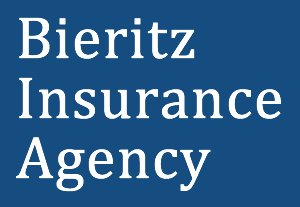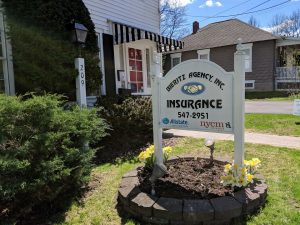Insuring Your New Home Purchase
Homeowners insurance isn’t optional. If disaster strikes, without homeowners insurance you could be in severe financial trouble. In short, you don’t want to buy a house if you don’t plan on getting it protected from damage. But how exactly does homeowners insurance work and what should you look for when purchasing a new home that may raise your rates? Here are some things you need to know before finding a place to settle down.

Basic Facts About Homeowners Insurance
Homeowners insurance can seem a little daunting, but it’s actually pretty simple. These are the main things that homeowners insurance covers for you.
It helps you repair your home and other structures on your property
If your house is damaged or destroyed by, say, a fire or a hurricane, homeowners insurance will help you cover the cost of reconstruction, so you don’t have to break the bank trying to pay out of pocket. Also, homeowners insurance covers any structures you have on your property such as sheds, pools, swings, tree-houses, decks, lawns, etc. This way you can rest easy knowing that not only your house but features around it are protected in case of a disaster.
It helps you replace personal belongings
Most homeowner insurance policies not only cover your house but your personal belongings as well, such as furniture, TVs, jewelry, pretty much anything of monetary worth. Also, homeowners insurance doesn’t just cover valuable items from destruction in your house, but even outside your home. This means that if you lose a necklace in a hotel or the airport loses your luggage, your as protected as you would be if something was destroyed in your home.
It protects against liability
Homeowners insurance even covers some things you may not have thought of, but are just as important. For example, if someone gets hurt on your property–maybe your dog bites them, or they burn themselves on your stove, homeowners insurance can take care of any legal fees and medical expenses. Even if you accidentally hurt somebody away from your house, you’re still protected.
What Homeowners Insurance May not Automatically Cover
While there is a list of things that nearly all homeowner insurance policies cover, such as fires, thefts, hail, pipe bursts, explosions, and lighting, here are some things that most plans don’t cover.
Floods and earthquakes
When people buy homeowners insurance, many take it as a given that damage from earthquakes and floods will be included in the policy. However, most plans don’t actually cover these natural disasters automatically. If you want them covered, you may need a separate policy. Also, depending on whether or not you live in a hurricane-prone location, your insurance may not cover hurricanes unless you specifically request that it be included, and then you will have to pay extra.
Gradual wear and tear
Insurance is designed more for sudden, unpredictable, large-scale disasters. That doesn’t include wear and tear that occurs over long periods of time such as damage from mold or termites. If you want to protect against things like this, make sure to pay attention to the general upkeep of your house.
Government action
If for any reason the government seizes your land or your property, homeowners insurance, unfortunately, won’t cover any expenses which may result.
What to Look for When Buying a New Home
Now that we’ve covered what homeowners insurance is, what it includes and what it doesn’t, here are some things which will impact the cost of your insurance that you should pay attention to when buying a new home.
What your home would cost to rebuild
Insurance agents are going to pay close attention to the age of your house and what it would cost to rebuild if it were to be destroyed. You should too. If your home is especially expensive to restore, it will probably mean you will be paying higher rates on your insurance policy. A particular house may catch your eye, but if it’s too costly to insure, it may not be worth the investment.
History of claims in your neighborhood
Another thing insurance agencies look for when creating your rates is how many claims are made in the area around your house. Since insurance companies naturally want to make as few payouts as possible, if your houses neighborhood is known for a high frequency of claims, it is going to show on your bill.
Things in or around your house which may be a risk
If your house has anything that may pose a risk of injury like a swing set or pool, your rate for coverage may go up. Since these things can be liabilities, insurance companies will often try to counteract them with higher premiums.
New homeowners have enough to worry about apart from insurance, however as anyone will tell you, it is not something that can be ignored. Fortunately, it’s not as complicated as it may seem. For more information, a quote, or to purchase insurance, contact our team at Bieritz Insurance.

